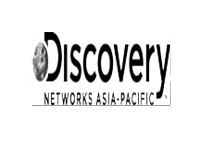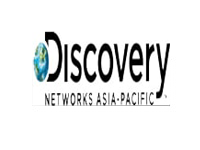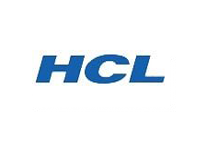Translation Services in Biochemistry



Introduction
A Crucial Link Between Science and Global Collaboration
In the modern scientific world, research and innovation transcend borders. Biochemistry, a field that blends biology and chemistry to study living organisms at the molecular level, plays a key role in advancing medical research, environmental science, biotechnology, and pharmacology. As these disciplines grow more interconnected globally, so does the need for clear, accurate communication. Translation services in biochemistry have emerged as an essential tool to facilitate this exchange of knowledge, ensuring that scientific discoveries are accessible, comprehensible, and actionable to an international audience.
The Importance of Translation in Biochemistry
Biochemistry research often involves complex terminologies, intricate processes, and highly specialized knowledge. When scientists, researchers, or pharmaceutical companies aim to collaborate across countries, they need to convey their findings and data in a language that can be universally understood. This is where professional translation services become vital.
The translation of biochemistry-related materials, such as research papers, patents, clinical trial reports, drug development documentation, or regulatory submissions, requires precision. Any error in translation, whether in a single term or in the interpretation of a process, could lead to miscommunication that might impact public health, misguide research, or delay scientific progress. Therefore, accurate translation ensures that these scientific materials are correctly interpreted by researchers, policymakers, medical professionals, and investors worldwide.
Specialized Knowledge in Translation
Biochemistry translation is not the same as translating general content. It requires translators with not only linguistic proficiency but also an in-depth understanding of the subject matter. The field of biochemistry is rich with scientific jargon, chemical structures, metabolic pathways, and molecular mechanisms, making it challenging for non-specialist translators. A linguist with a background in biochemistry, or access to subject-matter experts, can ensure that complex terminology is translated accurately without losing its intended meaning.
For example, when translating research involving enzyme kinetics, a translator needs to be familiar with terms like “Vmax” (maximum velocity) and “Km” (Michaelis constant). These scientific terms do not have direct equivalents in many languages, so the translator must convey their meaning precisely, often using explanatory phrases that align with the cultural and scientific understanding of the target audience.
Areas of Translation in Biochemistry
Translation services in biochemistry are applied across various sectors, including:
- Pharmaceutical Industry: In the drug development process, from the preclinical stages through clinical trials and regulatory approval, the translation of documents is crucial. This includes translating research findings, safety protocols, and reports for regulatory bodies like the FDA (Food and Drug Administration) or EMA (European Medicines Agency).
- Academic Research: As scientists publish their work in international journals, translation helps their findings reach a broader audience. Moreover, conferences and symposiums often require the translation of research papers, presentations, and posters for global dissemination.
- Environmental Biotechnology: Many biochemistry discoveries contribute to understanding environmental issues, such as pollution control, biodegradation, and renewable energy. Translating this research enables global collaboration in addressing environmental challenges.
- Patent Translation: Protecting intellectual property in biochemistry requires translating patents accurately. Misinterpreting patent claims can have legal and financial ramifications, so expertise in both legal language and biochemistry is necessary.
Challenges in Biochemistry Translation
One of the greatest challenges in biochemistry translation is maintaining the integrity of the original material while making it accessible in another language. Scientific language tends to be very specific, and certain concepts may not have direct counterparts in other languages. Moreover, some cultures have different conventions for writing scientific documents, requiring translators to adapt content to fit those standards without compromising accuracy.
Another challenge is keeping pace with new developments. Biochemistry is a rapidly evolving field, with new discoveries, techniques, and terminologies emerging frequently. Translators must continuously update their knowledge to stay current with the latest advances in the field.
























- Agriculture/Environment Translation Services
- Architecture Translation Services
- Arts Translation Services
- Automation/Engineering Translation Services
- Biochemistry Translation Services
- Biology Translation Services
- Chemistry Translation Services
- Communications Translation Services
- Computers/IT Translation Services
- Cooking/Food/Beverages Translation Services
- Financial/Economics Translation Services
- Hardware/Construction Translation Services
- Education/Training Translation Services
- Film - Theatre Translation Services
- Health and Beauty Translation Services
- History Translation Services
- Insurance Translation Services
- Internet/Multimedia Translation Services
- Hospitality Industry Translation Services
- Journalism - Press Translation Services
- Legal Translation Services
- Literature/Publishing Translation Services
- Music Translation Services
- Patents/Intellectual Property Translation Services
- Physics Translation Services
- Politics Translation Services
- Psychology/Psychiatry Translation Services
- Real Estate Translation Services
- Social Sciences Translation Services
